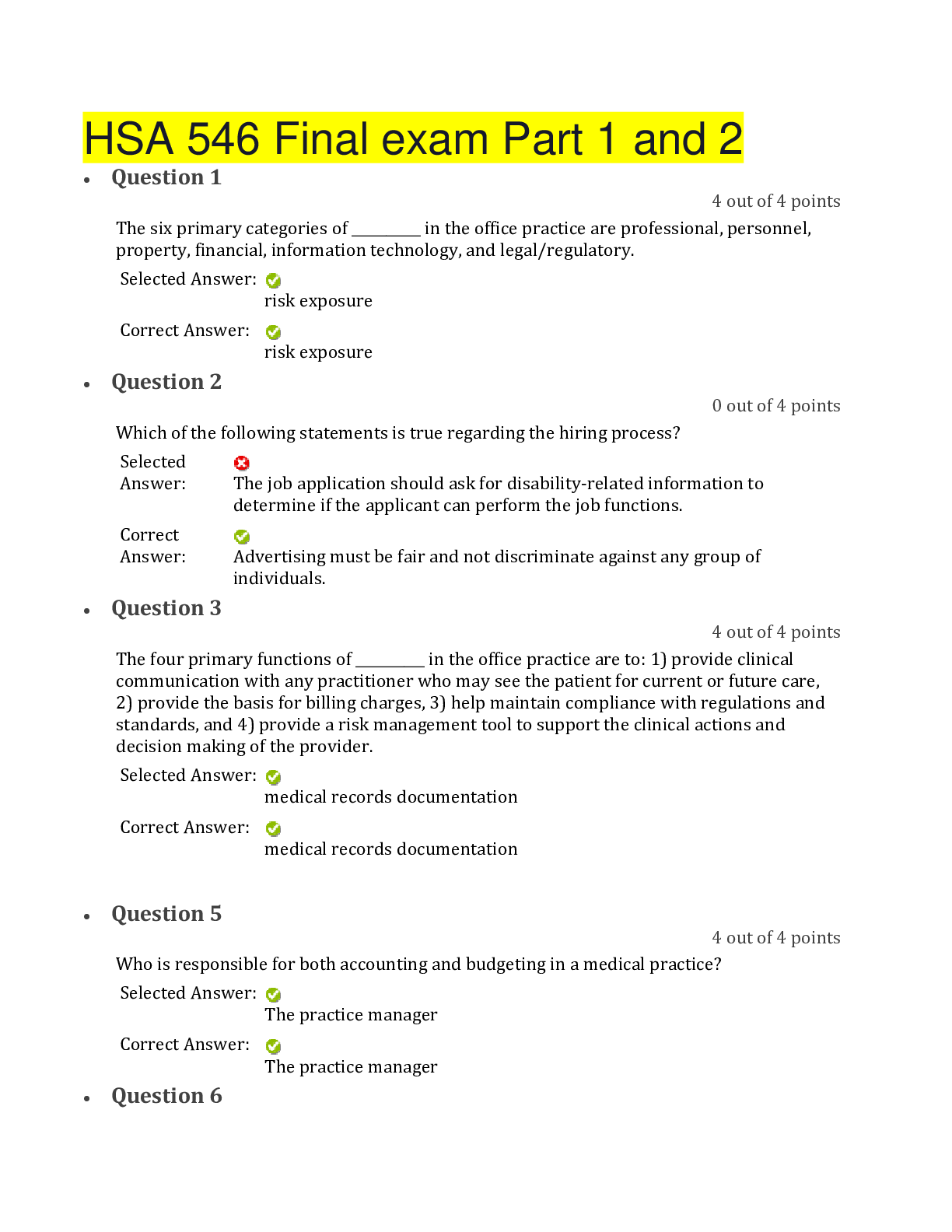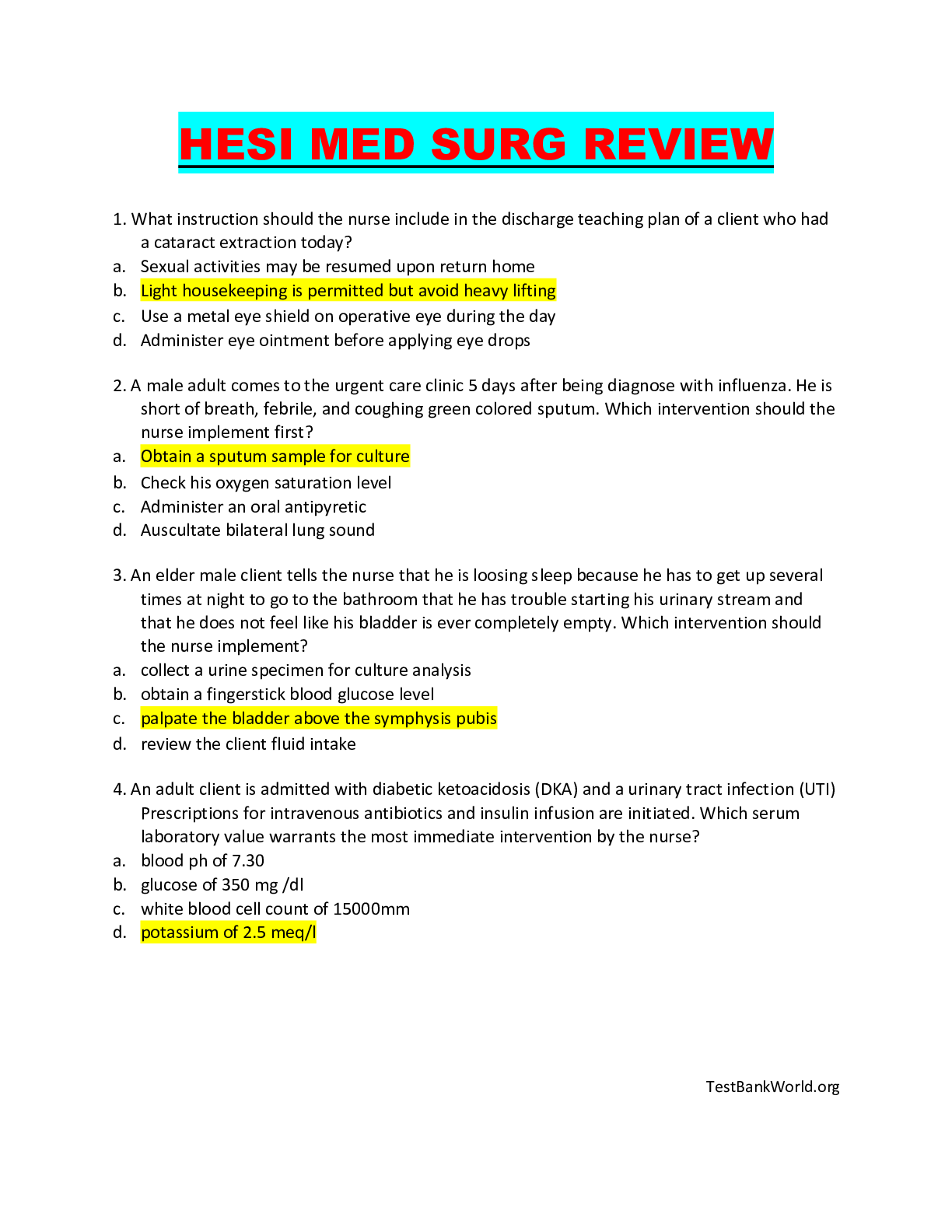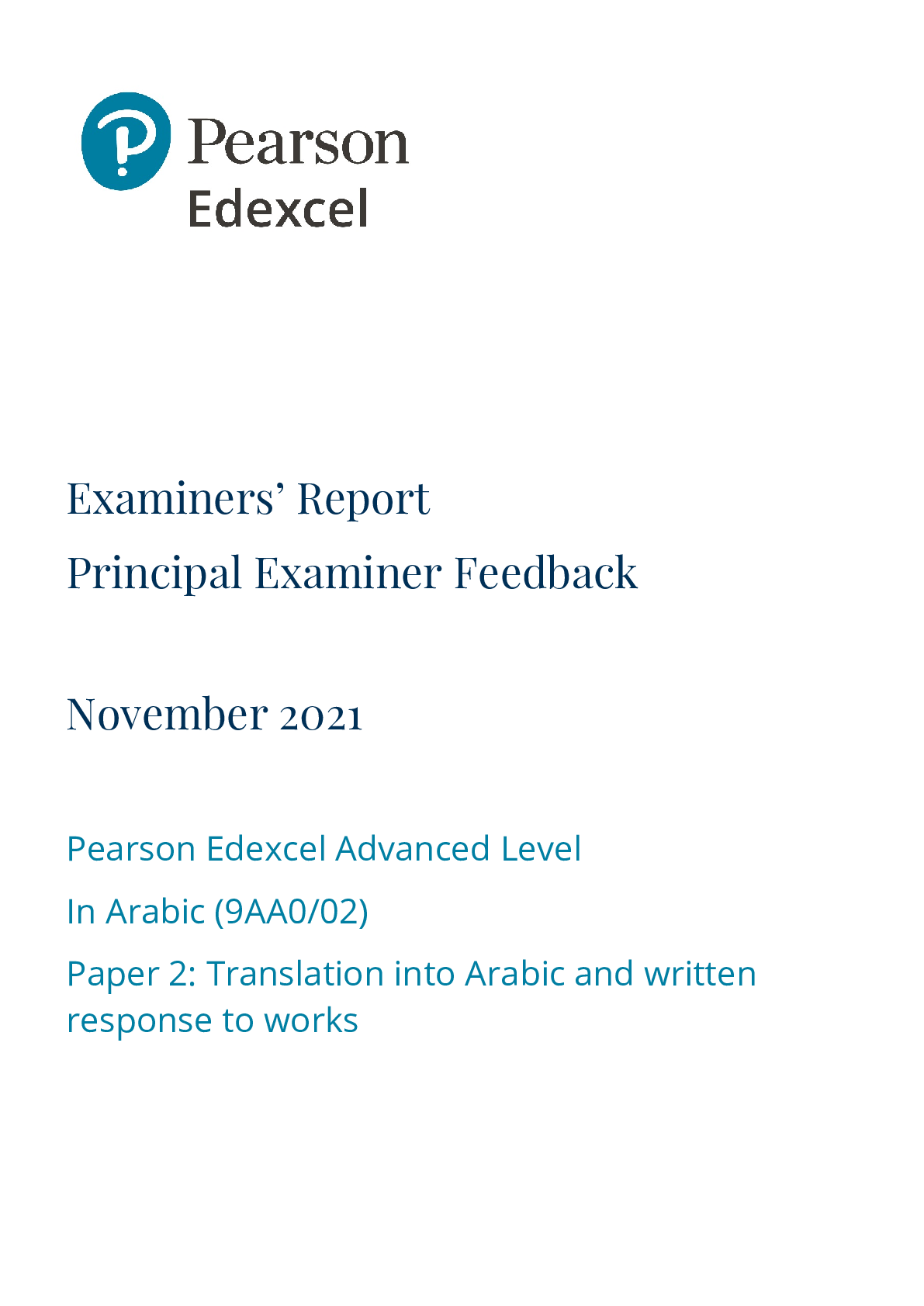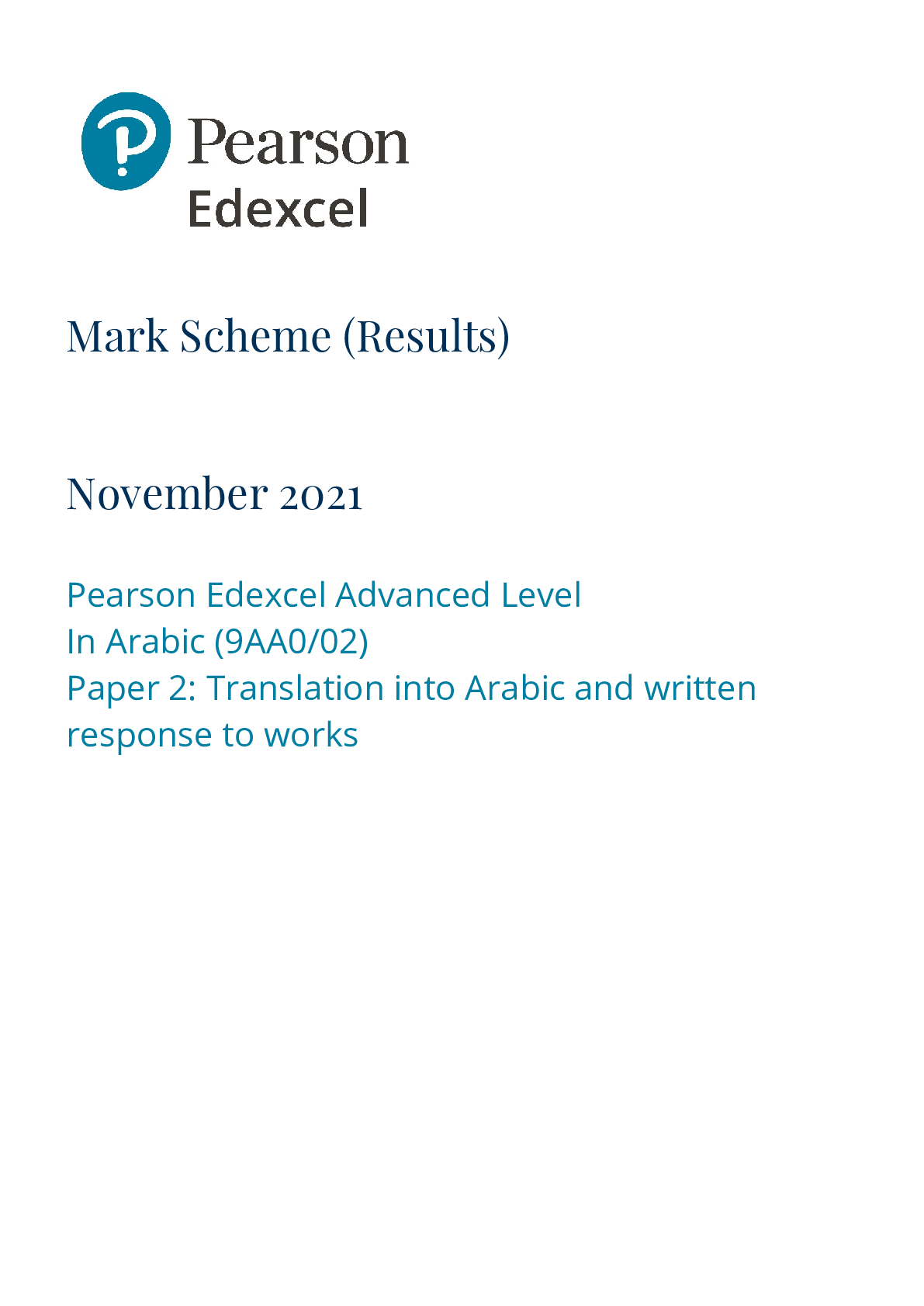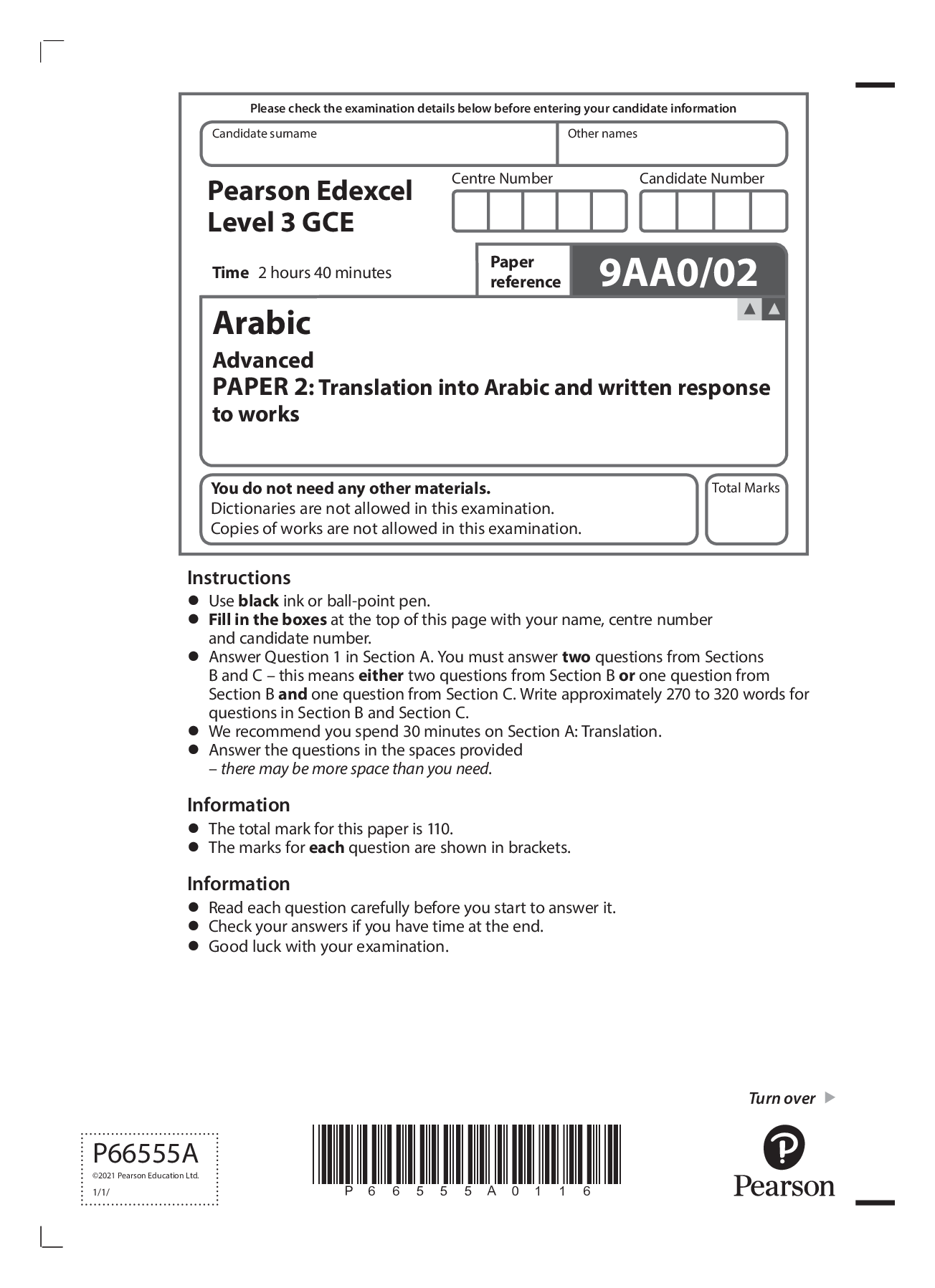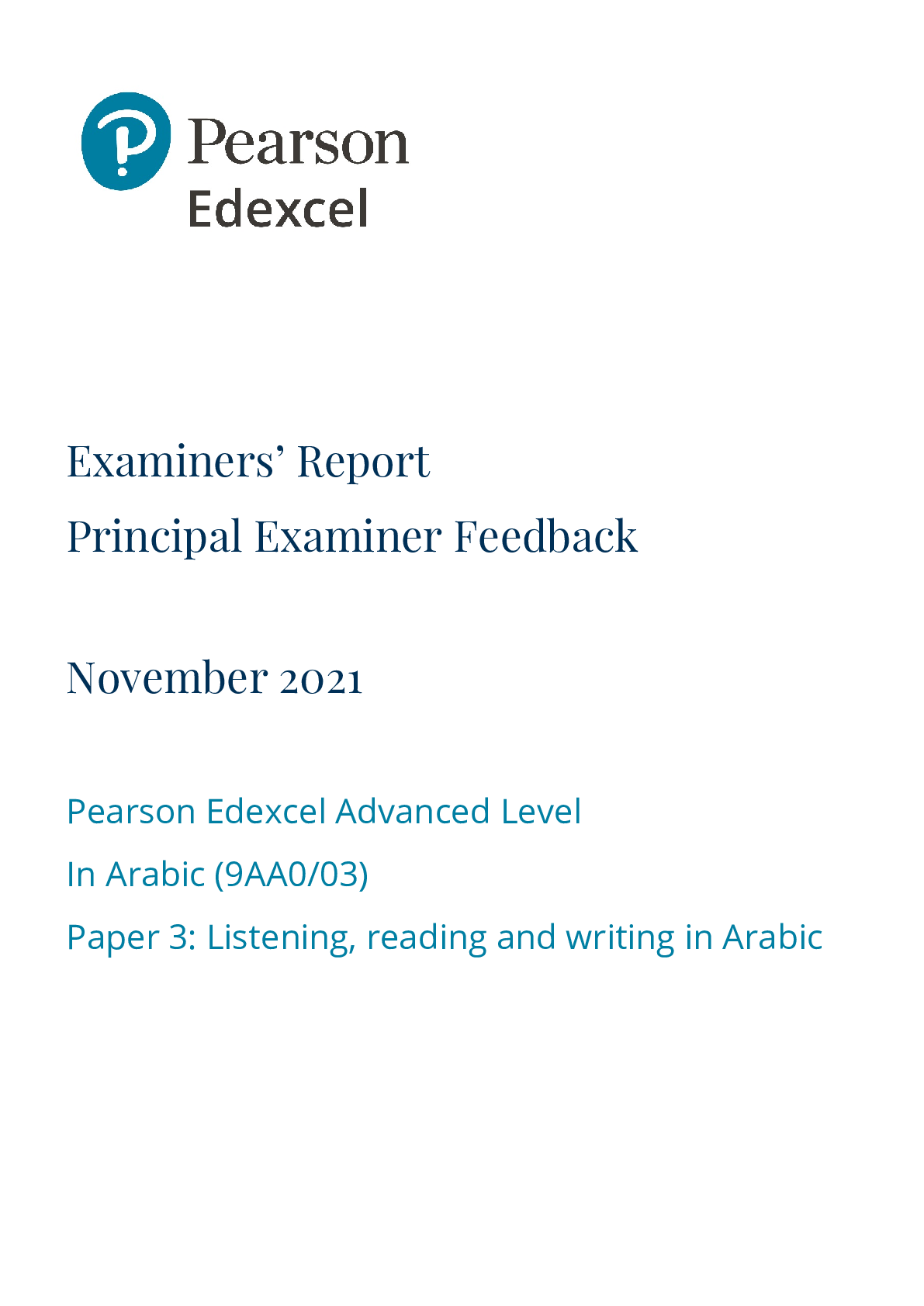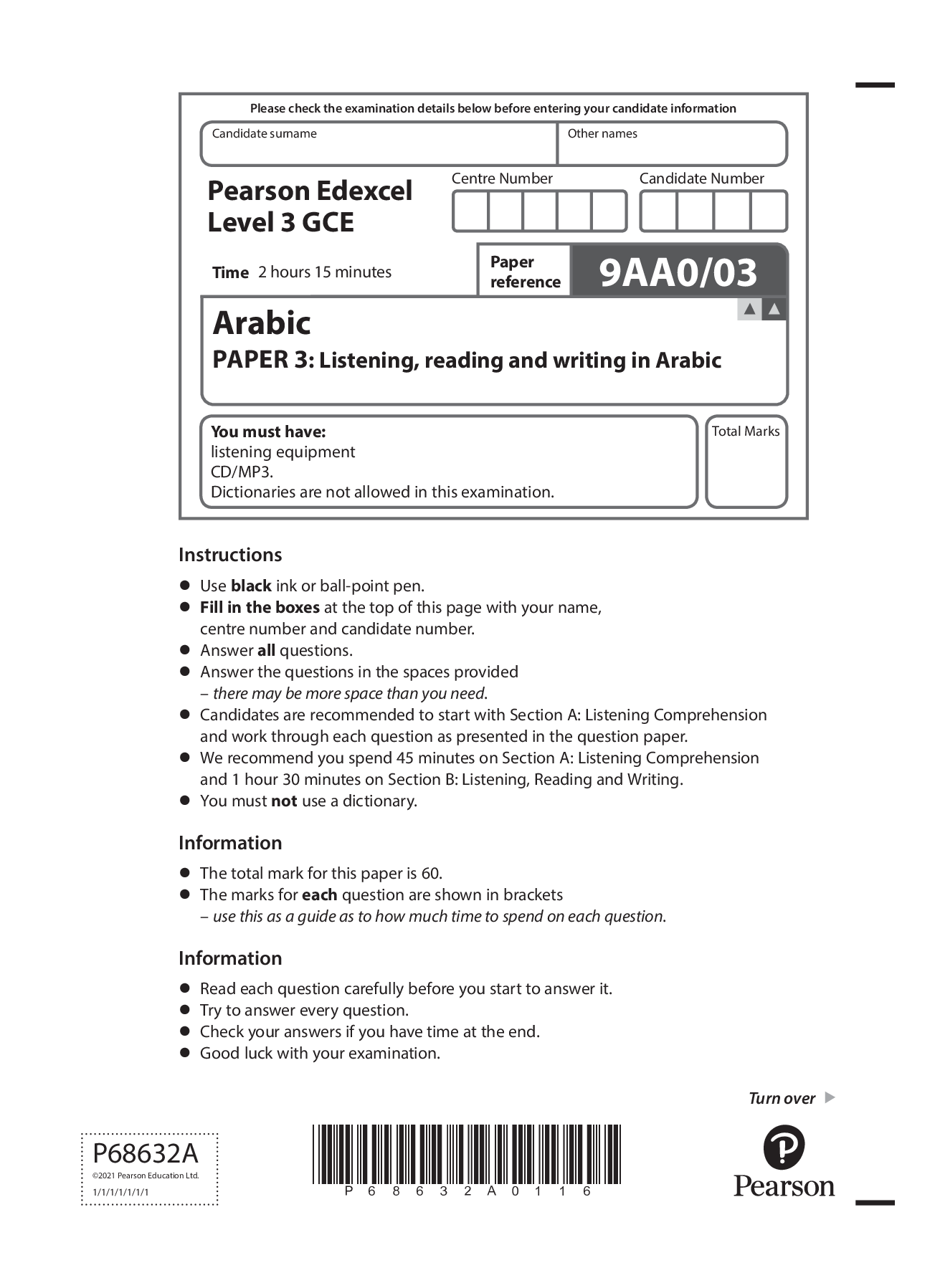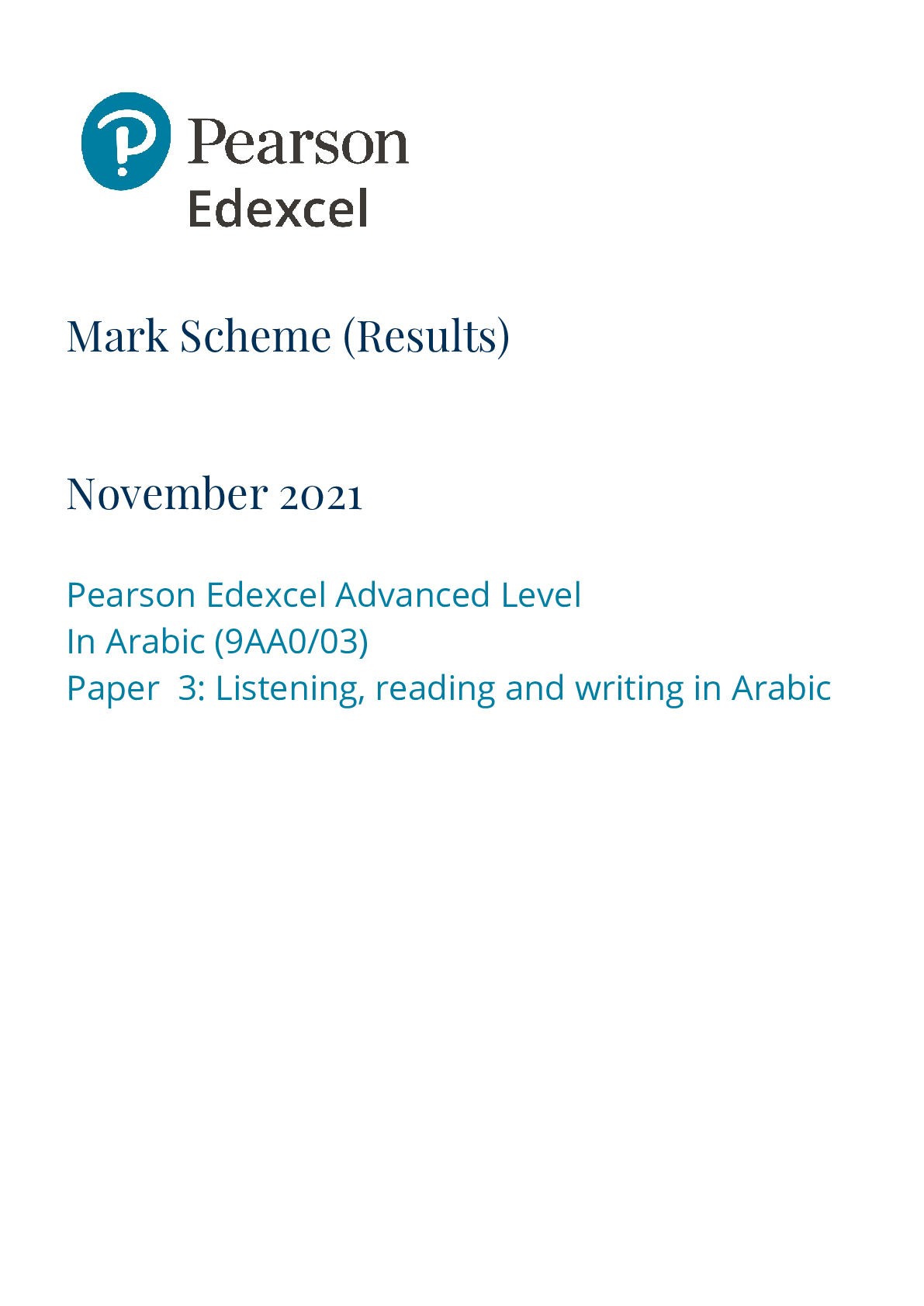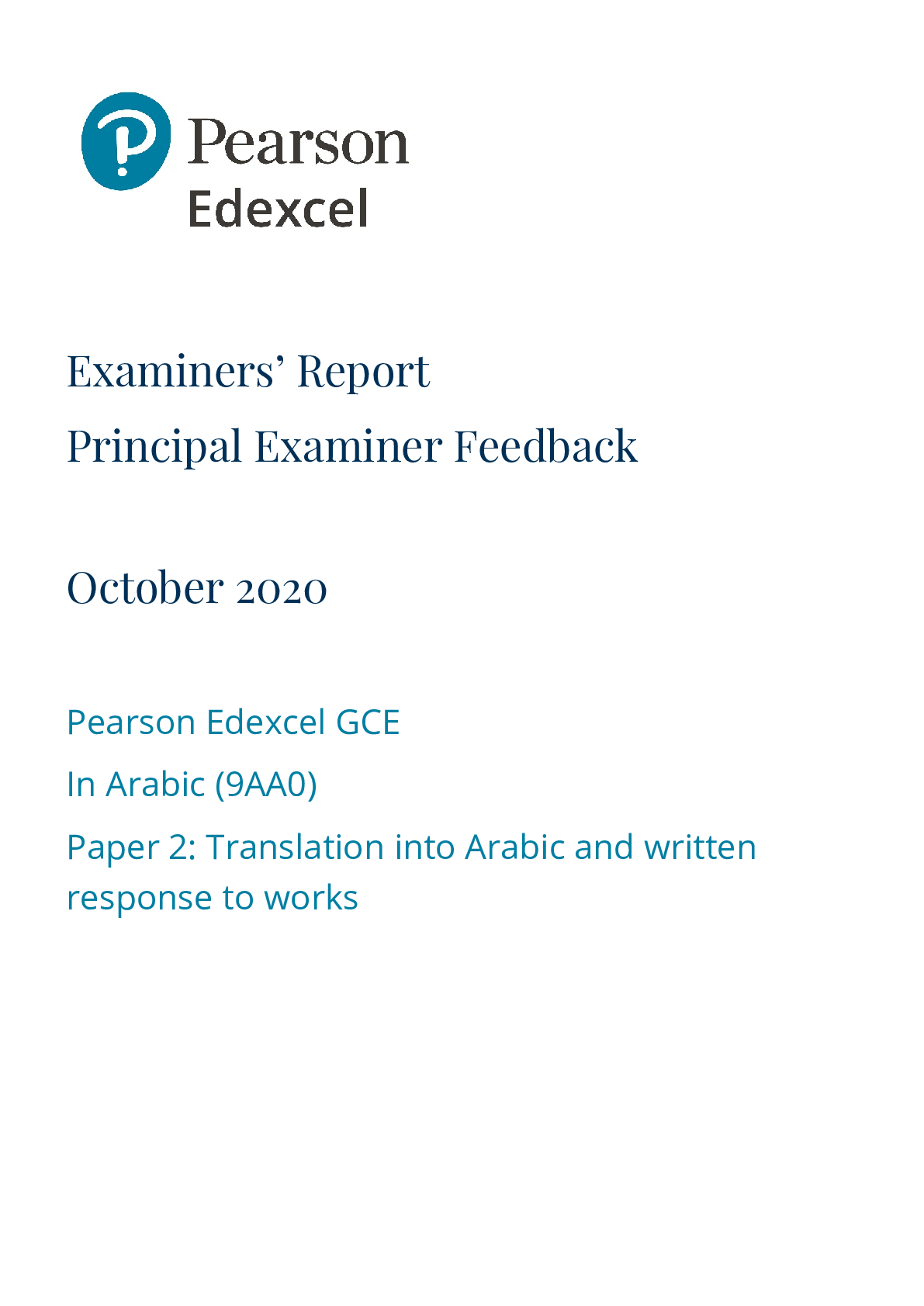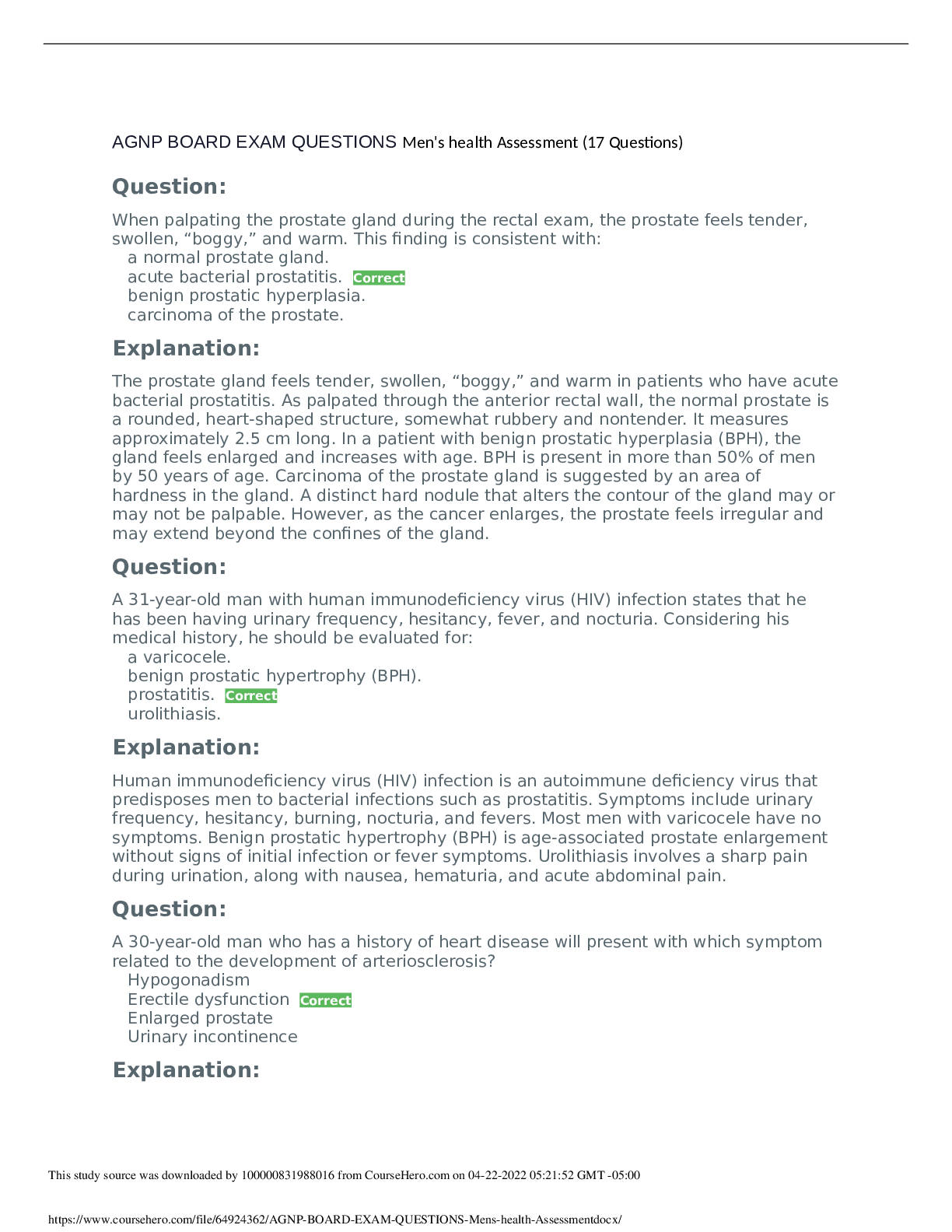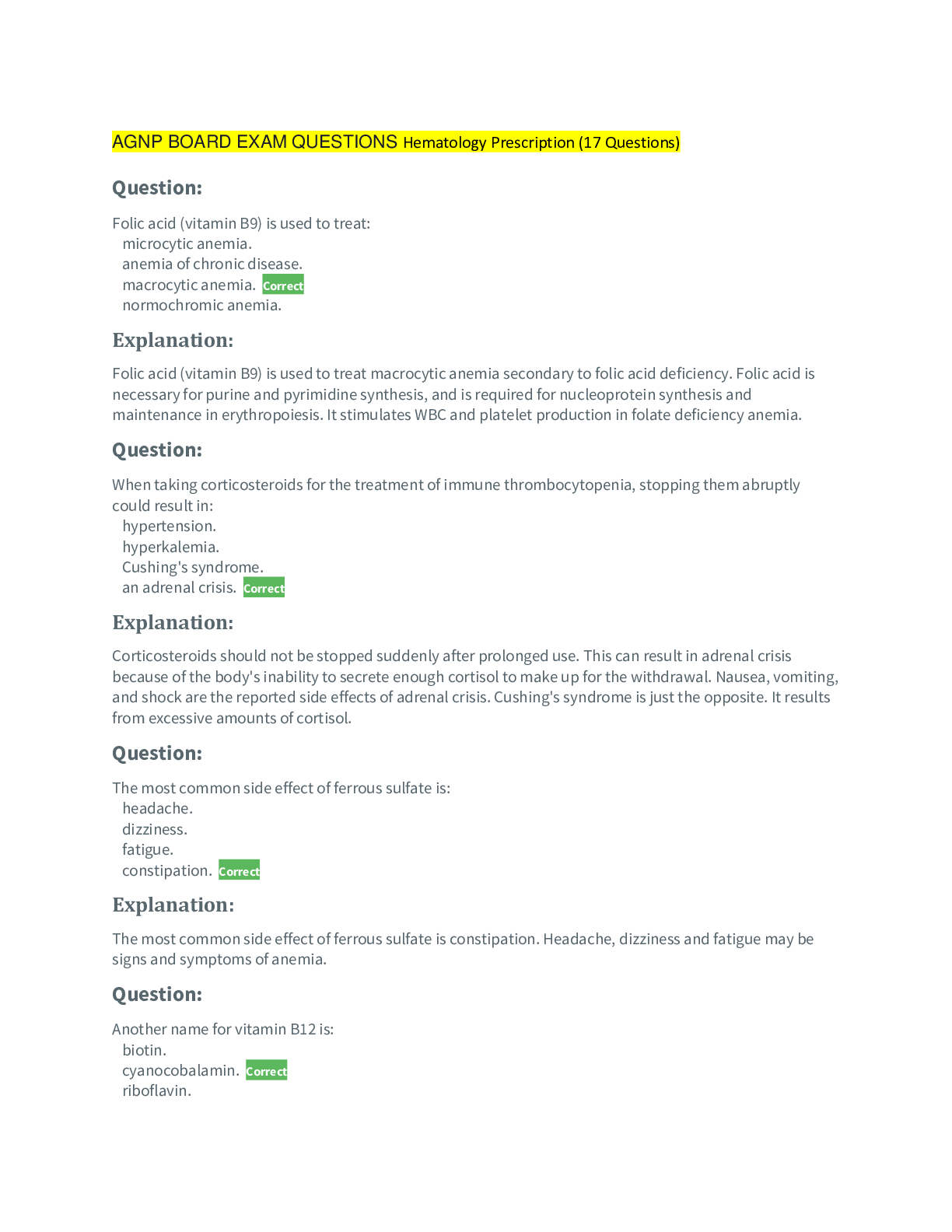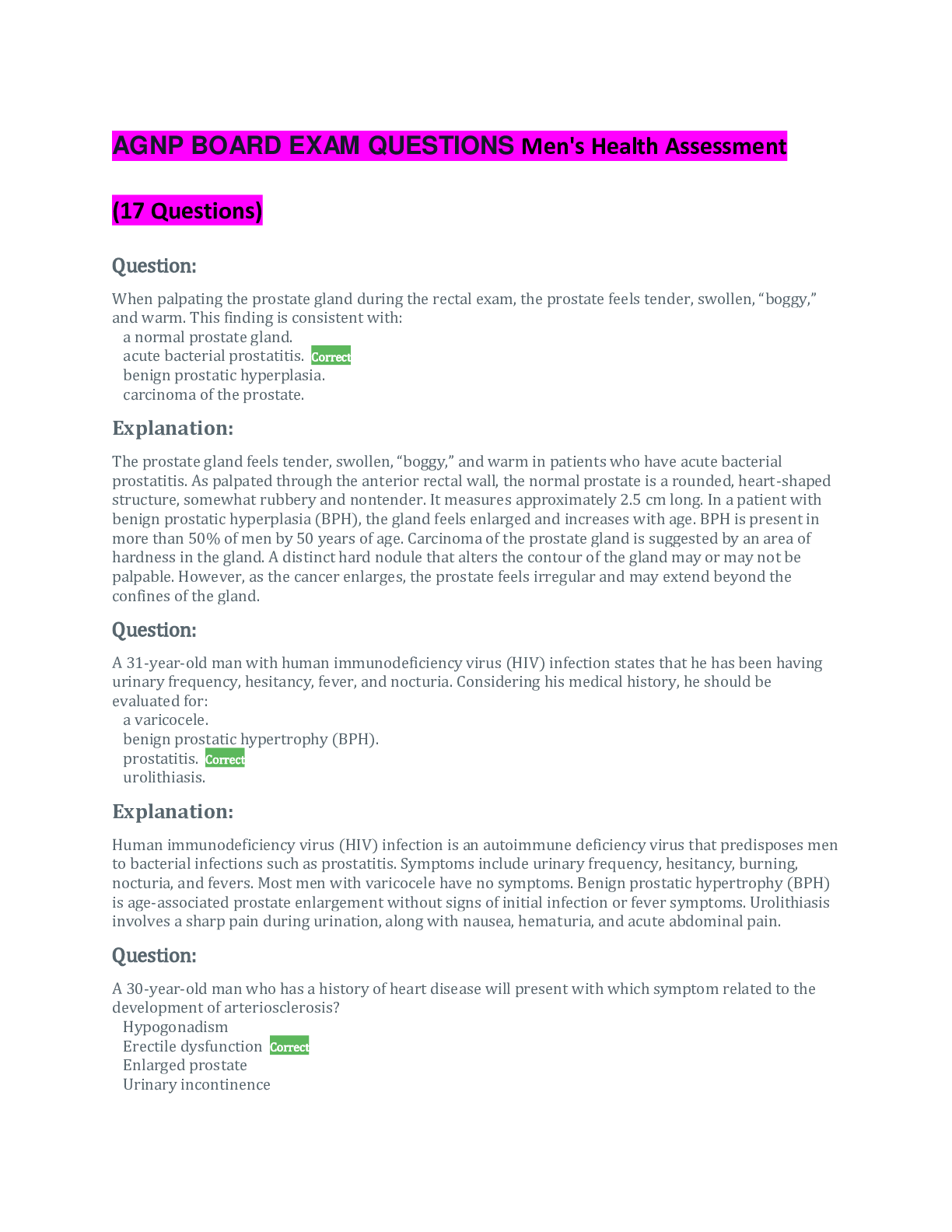*NURSING > EXAM > AGNP BOARD EXAM QUESTIONS ; Men's health Assessment (17 Questions and Answers) (All)
AGNP BOARD EXAM QUESTIONS ; Men's health Assessment (17 Questions and Answers)
Document Content and Description Below
AGNP BOARD EXAM QUESTIONS ; Men's health Assessment (17 Questions and Answers) Question: When palpating the prostate gland during the rectal exam, the prostate feels tender, swollen, “boggy,” an... d warm. This finding is consistent with: a normal prostate gland. acute bacterial prostatitis. Correct benign prostatic hyperplasia. carcinoma of the prostate. Explanation: The prostate gland feels tender, swollen, “boggy,” and warm in patients who have acute bacterial prostatitis. As palpated through the anterior rectal wall, the normal prostate is a rounded, heart-shaped structure, somewhat rubbery and nontender. It measures approximately 2.5 cm long. In a patient with benign prostatic hyperplasia (BPH), the gland feels enlarged and increases with age. BPH is present in more than 50% of men by 50 years of age. Carcinoma of the prostate gland is suggested by an area of hardness in the gland. A distinct hard nodule that alters the contour of the gland may or may not be palpable. However, as the cancer enlarges, the prostate feels irregular and may extend beyond the confines of the gland. Question: A 31-year-old man with human immunodeficiency virus (HIV) infection states that he has been having urinary frequency, hesitancy, fever, and nocturia. Considering his medical history, he should be evaluated for: a varicocele. benign prostatic hypertrophy (BPH). prostatitis. Correct urolithiasis. Explanation: Human immunodeficiency virus (HIV) infection is an autoimmune deficiency virus that predisposes men to bacterial infections such as prostatitis. Symptoms include urinary frequency, hesitancy, burning, nocturia, and fevers. Most men with varicocele have no symptoms. Benign prostatic hypertrophy (BPH) is age-associated prostate enlargement without signs of initial infection or fever symptoms. Urolithiasis involves a sharp pain during urination, along with nausea, hematuria, and acute abdominal pain. Question: A 30-year-old man who has a history of heart disease will present with which symptom related to the development of arteriosclerosis? Hypogonadism Erectile dysfunction Correct Enlarged prostate Urinary incontinence Explanation: Erectile dysfunction is commonly caused by atherosclerosis in older men and is frequently considered a manifestation of vascular disease. Hypogonadism is caused by changes in testosterone. Prostate enlargement occurs in most older men and is not specifically related to heart disease. Urinary incontinence is a symptom associated with enlarged prostate and is not specific to atherosclerotic changes. Question: At what age should a practitioner suggest a colonoscopy for a male patient as part of primary care screening? 40 years 45 years 50 years Correct 55 years Explanation: The American Cancer Society recommends that a colonoscopy for colorectal cancer screening be performed at age 50 and every 10 years afterward, as long as screening is negative. Testing prior to age 50 depends on risk factors such as family history or history of inflammatory bowel disease. Question: When the scrotum is transilluminated in a 4-month-old boy, it lights up brightly. This finding may be consistent with: normal scrotal findings. an inguinal hernia. cryptorchidism. a hydrocele. Correct Explanation: A hydrocele is defined as swelling in the scrotum that lights up on transillumination. Inguinal hernia and cryptorchidism are diagnosed using palpation of the scrotum and testicle and are not associated with fluid collection. Swelling of the scrotum and collection of serous fluid are not normal findings. Question: When examining the prostate gland the examiner should inform the patient that this procedure may: cause him to urinate. prompt an urge to defecate. prompt an urge to urinate. Correct cause him to cough. Explanation: When examining the prostate gland on a male patient, the examiner should inform the patient that this procedure may prompt an urge to urinate but reassure him that he will not void on himself. ...............continued [Show More]
Last updated: 1 year ago
Preview 1 out of 5 pages
Instant download
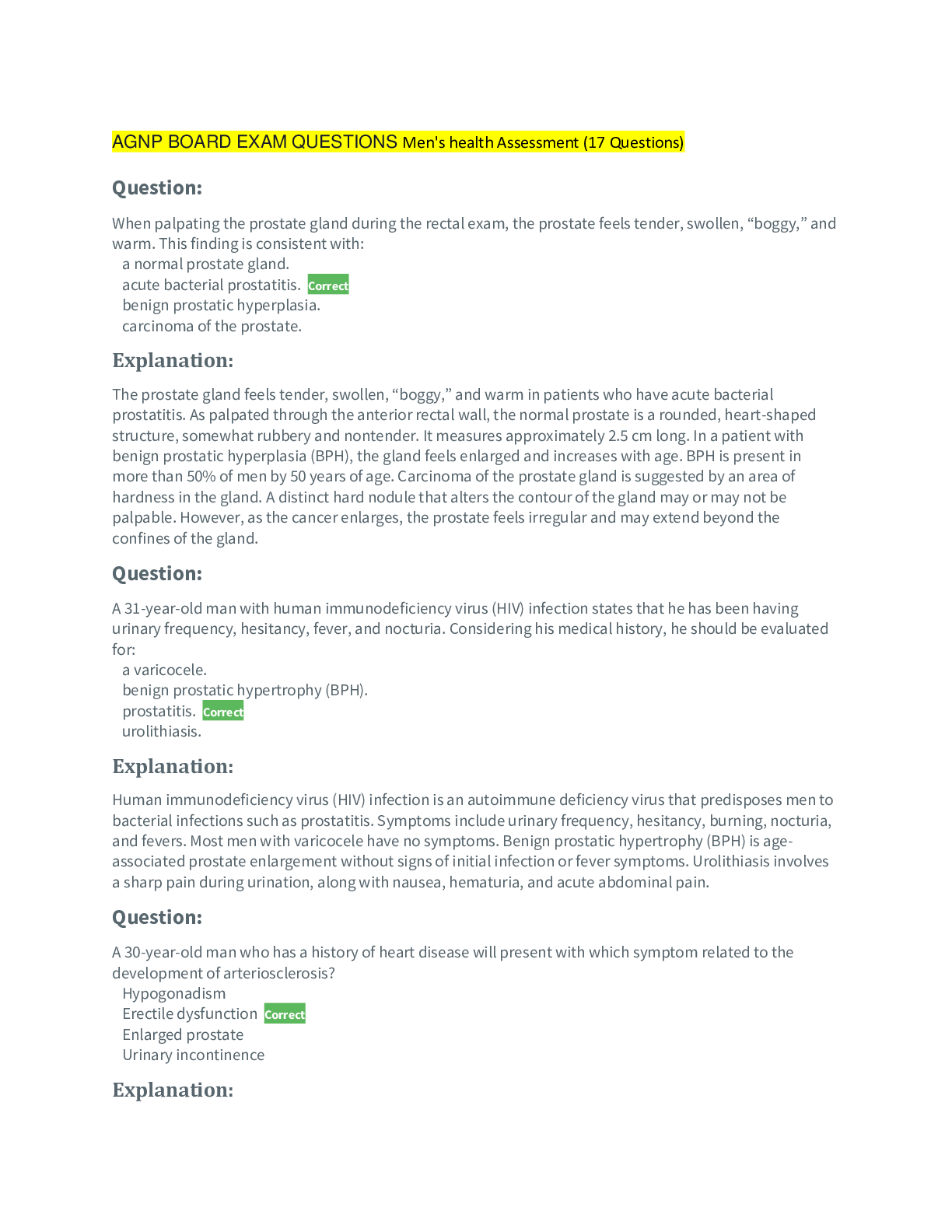
Buy this document to get the full access instantly
Instant Download Access after purchase
Add to cartInstant download
Also available in bundle (1)
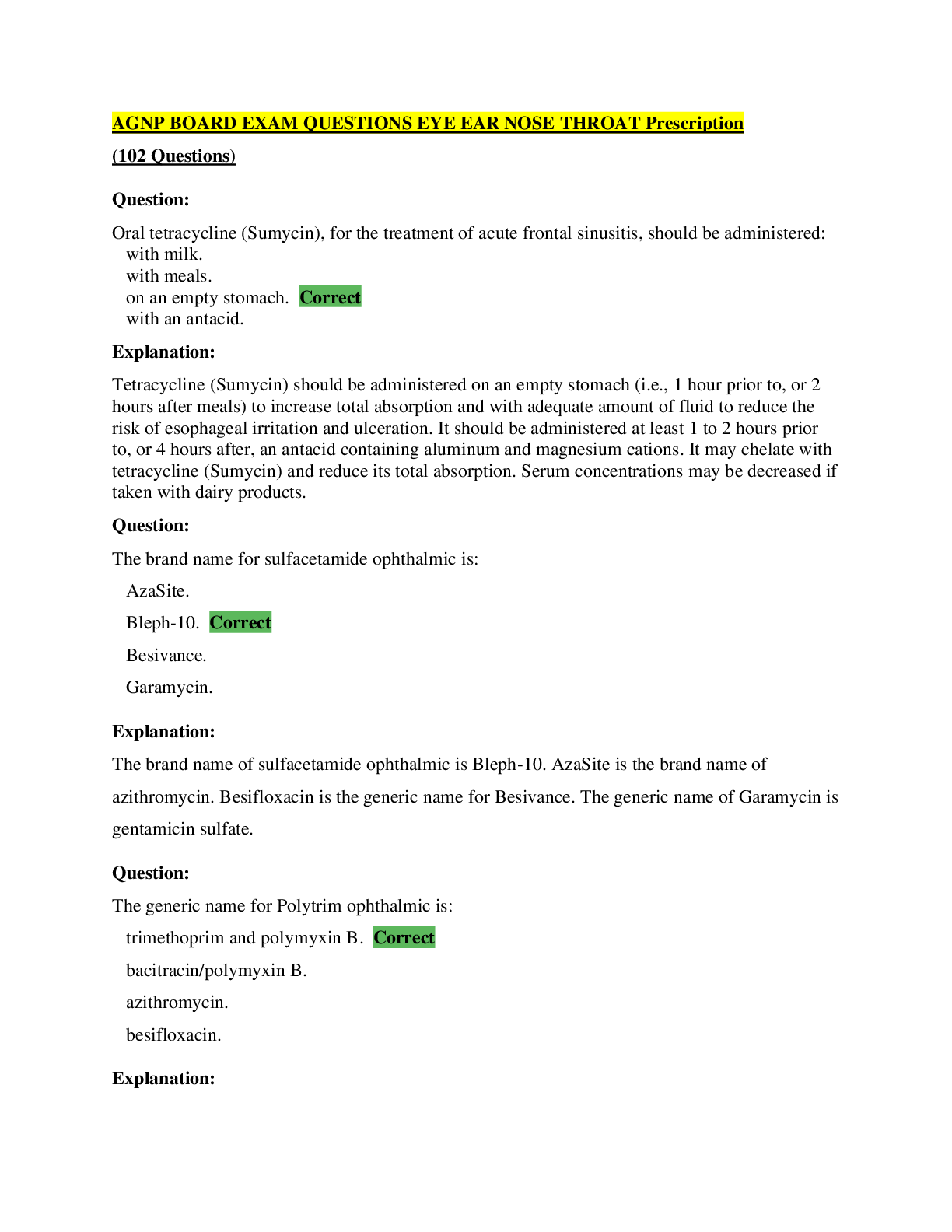
AGNP BOARD EXAMS (23 Different Versions) ; Questions and Answers
AGNP BOARD EXAMS (23 Different Versions) ; Questions and Answers
By YourTutor 3 years ago
$95.5
23
Reviews( 0 )
Document information
Connected school, study & course
About the document
Uploaded On
Feb 01, 2021
Number of pages
5
Written in
Additional information
This document has been written for:
Uploaded
Feb 01, 2021
Downloads
0
Views
65

